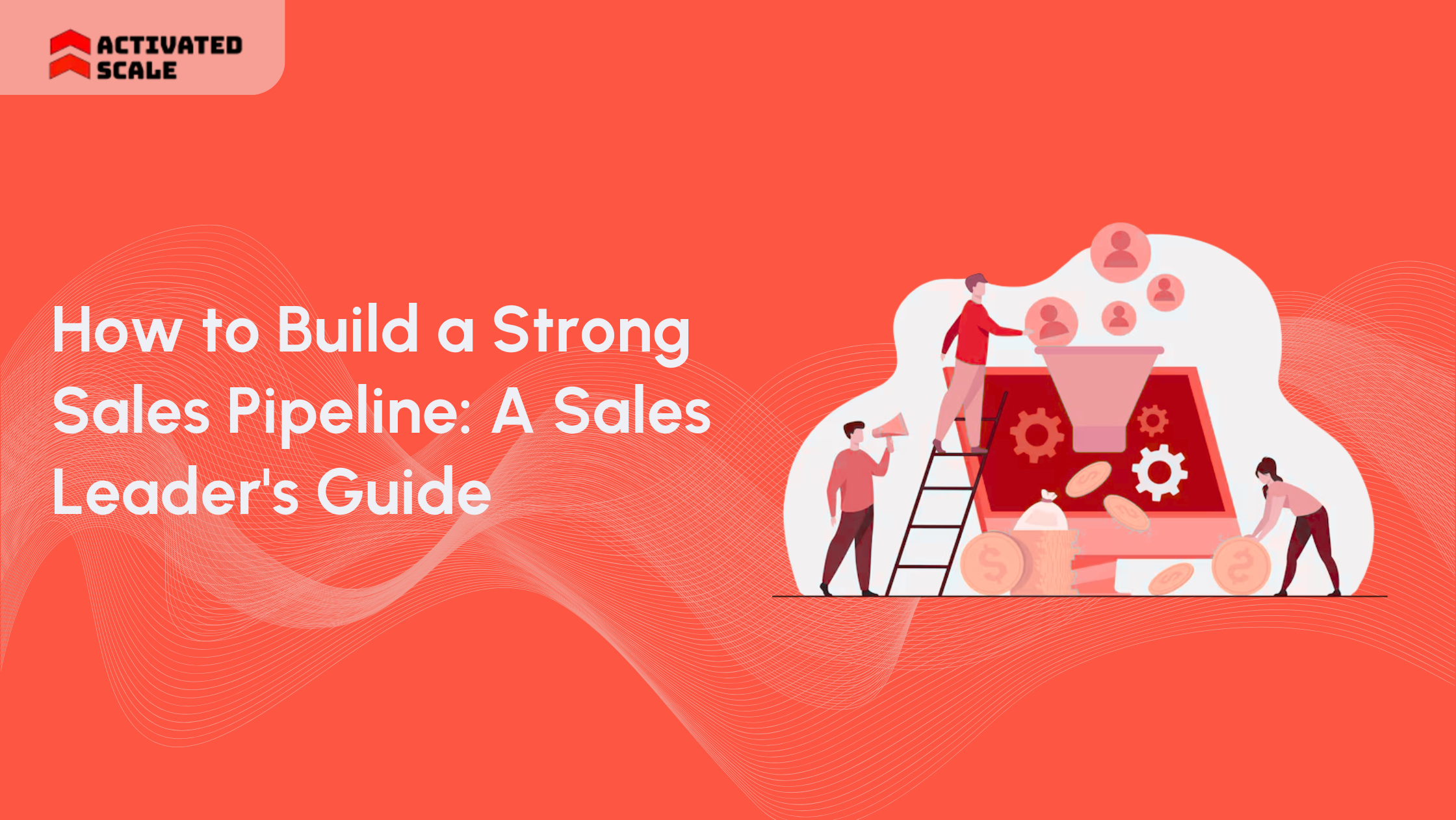Remember that initial hustle?
You were a one-person sales team, hustling every lead.
Now, your startup's on fire, but you can't clone yourself. Can you?
Building the right team is your key to scaling, but with so many SaaS sales roles, where do you even begin?
Introduction to SaaS Sales
Have you ever considered transitioning away from cumbersome software installations and instead offering a product that exists entirely online? This is the core concept behind Software as a Service, or SaaS.

The SaaS market is anticipated to reach a valuation of $307.3 billion by 2026. That is almost twice as much as the $158 billion estimated for 2020.
Your product works through a web browser, usable anytime, anywhere. No one-time purchases. SaaS is all about subscriptions, meaning you need to convince customers of the ongoing value you provide.
This can lead to more complex sales cycles. Unlike a tangible product, your software needs to solve a specific problem and integrate seamlessly into your customer's workflow. This is where strong SaaS sales roles are crucial.
You'll need a team that can not only understand your product but also translate its benefits into real results for your customers. That's the secret tip to scaling your business – the right team selling the right product in the right way. This blog outlines key SaaS sales roles to boost your startup.
If you’re struggling with finding such talent, Activated Scale could be the partner you need to bridge this gap.
Importance of understanding SaaS:
You know that your startup thrives on a service, not a product. A service that keeps offering value, month after month. Before diving into the sales aspects of SaaS, it's crucial to understand what SaaS entails. This foundation will equip you to approach SaaS sales roles effectively and set your business up for success.
- Product Knowledge: Understand the features and benefits of your SaaS product. This helps you sell with confidence and address customer questions accurately.
- Market Understanding: Know your target market and customer needs. This insight guides your sales strategy and helps tailor your approach to potential buyers.
- Subscription Model: Grasp the subscription-based pricing structure. Knowing how it impacts customer budgets and decision-making processes is vital for closing deals.
- Customer Journey: Familiarize yourself with the typical customer journey in SaaS. This includes awareness, consideration, decision, and post-purchase stages.
- Long-term Relationships: Focus on building and maintaining long-term customer relationships. Unlike one-time sales, SaaS requires ongoing support and engagement. Leveraging experienced sales talent from a partner like Activated Scale could ensure that these relationships are nurtured effectively.
Also read Building an Effective Enterprise SaaS Sales Strategy
Now, let's explore the essential SaaS sales roles you need to fill for your startup or SME to achieve explosive growth.
Essential SaaS Sales Roles

You've built a fantastic SaaS product. It solves real problems, delivers amazing value, and is all set to take the market by storm. But there's one crucial piece missing: the sales mechanism to turn potential customers into loyal fans.
Here's some good news: you don't need to go it alone. Building a strong team with the right SaaS sales roles is the key to turning your innovative idea into a thriving business. Let's explore the crucial SaaS sales roles you need to know.
Sales Development Representative (SDR):
The Sales Development Representative (SDR) is a crucial player in the SaaS sales roles lineup. An SDR’s main job is to identify and qualify potential leads. They’ll be the first point of contact for many prospects, setting the stage for the rest of the sales process.
Here's a closer look at the vital responsibilities of an SDR:
- Lead Generation: Sales Development Representatives leverage a variety of strategies, including cold calling, email outreach, and social media prospecting, to identify potential customers who perfectly align with your ideal buyer profile.
- Lead Qualification: Not every lead works. So, SDRs employ their expertise to assess a prospect's needs and challenges. By asking insightful questions, they qualify leads, ensuring those with the highest conversion potential are prioritized.
- Pipeline Development: SDRs nurture qualified leads with valuable content and resources, keeping them engaged and moving them closer to a buying decision. This ensures a steady stream of sales-ready leads for your Sales Representatives.
Also read What Does A Sales Development Representative (SDR) Do?
With Activated Scale, you can gain access to seasoned SDRs who excel in pipeline management.
SaaS Sales Representative
When your business’s SDR team has meticulously identified and nurtured qualified leads, the SaaS Sales Representative takes center stage. These individuals are the cornerstones of your revenue generation, responsible for converting qualified leads into loyal customers.
Here's a breakdown of the core responsibilities that define a successful SaaS Sales Representative:
- In-Depth Customer Needs Analysis: Effective SaaS sales representatives go beyond surface-level conversations. They are keen to delve into a prospect's specific challenges and business objectives. This deep understanding empowers them to tailor value propositions directly addressing those pain points, showcasing how their solution is a perfect fit.
- Product Expertise: Knowledge is power, and that knowledge translates to product expertise in the realm of SaaS sales. Top SaaS sales reps are well-versed in every aspect of your offering – from core functionalities to integration capabilities. They can articulate these benefits clearly, concisely, and compellingly.
- Compelling Communication and Negotiation: SaaS sales representatives craft engaging presentations and confidently address objections. They guide prospects through the buying journey, highlighting the value proposition and fostering trust. Additionally, they leverage strong negotiation skills to reach mutually beneficial agreements, ensuring customer satisfaction alongside achieving sales targets.
- Building Long-Term Client Relationships: SaaS sales extend beyond the initial transaction. Successful SaaS sales representatives prioritize fostering long-term relationships with their clients. They proactively ensure customer success and identify potential upsell opportunities that further strengthen the partnership.
It helps to have savvy sales representatives, and Activated Scale can provide access to these skilled professionals.
SaaS Account Manager
The sale is closed, but the journey has just begun. This is where the SaaS Account Manager steps in, a crucial member of your SaaS sales team focused on ensuring long-term customer success and maximizing the value they derive from your product.
Here’s what they do:
- Customer Onboarding: New customers need a smooth transition. Account Managers guide them through onboarding, ensuring they understand and can leverage your product's full potential.
- Proactive Engagement: Communication keeps going. SaaS Account Managers maintain contact, proactively addressing challenges and fostering trust.
- Track and Report Value: They monitor usage data and KPIs to show customers the positive impact your product has on their business.
- Renewal and Upsell: It goes without saying that happy customers are loyal customers. Account Managers identify opportunities to renew subscriptions and explore upsell possibilities, driving recurring revenue and customer lifetime value.
If this role isn’t yet part of your team, look into the solutions Activated Scale offers to bring such expertise on board.
SaaS Sales Engineer
A SaaS Sales Engineer is a technical expert who bridges the gap between the sales and product teams. They support the sales process by providing in-depth technical knowledge and solutions to potential customers.
Responsibilities of a SaaS Sales Engineer:
- Technical Demos: Conduct detailed product demonstrations to show how your SaaS solution addresses customer challenges.
- Solution Design: Work with prospects to understand their requirements and design tailored solutions using your product.
- Technical Support: Provide pre-sales technical assistance, answering questions and resolving concerns during the sales process.
- RFP Responses: Assist in responding to requests for proposals (RFPs) by providing technical details and insights.
- Customer Needs Analysis: Collaborate with the sales team to analyze customer needs and ensure the proposed solutions align with those needs.
- Proof of Concept: Develop and manage proof-of-concept projects to demonstrate the product’s capabilities in the customer's environment.
- Feedback Loop: Share customer feedback with product development to improve SaaS.
Sales Manager
You've assembled a talented team of SDRs, Sales Representatives, Account Managers, and Sales Engineers. But, you need a leader who drives strategy, motivates the other Saas sales roles, and ultimately fuels growth. That’s the role of a Sales Manager.
Here's a quick rundown of the key responsibilities that define a successful Sales Manager:
- Team Leadership: Lead, motivate, and coach the sales team to achieve their targets and excel in their roles.
- Strategy Development: Collaborate with senior management to develop sales strategies that drive revenue growth and market expansion.
- Performance Monitoring: Track sales performance metrics, analyze data, and identify areas for improvement to optimize sales effectiveness.
- Pipeline Management: Oversee the sales pipeline, ensuring it's robust and leads are effectively managed throughout the sales process.
- Training and Development: Provide ongoing training and development opportunities to enhance the sales team's skills and knowledge.
- Cross-functional Collaboration: Work closely with marketing, product, and customer success teams to ensure alignment and synergy across departments.
- Forecasting and Planning: Forecast sales projections and develop sales plans to meet or exceed revenue targets.
Conclusion: Enhancing Team Cohesion Through Defined SaaS Sales Roles
It's clear by now that building a winning SaaS sales team goes beyond just hiring talented individuals. Clearly defined SaaS sales roles are the foundation for success. Investing in defining SaaS sales roles isn't just about assigning tasks; it's about empowering individuals to excel in their areas of expertise while working cohesively toward shared goals. This clarity not only enhances team dynamics but also ensures that resources are utilized efficiently and effectively.
Additionally, strategic hiring practices contribute to a stable and high-performing sales team, ultimately driving sustained success in the competitive SaaS landscape. By prioritizing role definition and strategic hiring, organizations can elevate their SaaS sales teams to new heights of performance and productivity.
For those seeking to optimize their approach to hiring, considering Activated Scale could be a strategic move to enhance team cohesion and drive sales growth.
Moreover, strategic hiring practices are pivotal in maintaining team cohesion and minimizing turnover. Select candidates with the right skills or SaaS sales roles and team fit to build commitment.
Also read Top Performing Sales Recruitment Tactics.
The Ultimate Guide to Hiring a Salesperson!
Get the step-by-step guide to hiring, onboarding, and ensuring success!
_edi.png)
.png)



